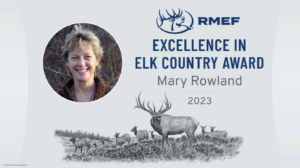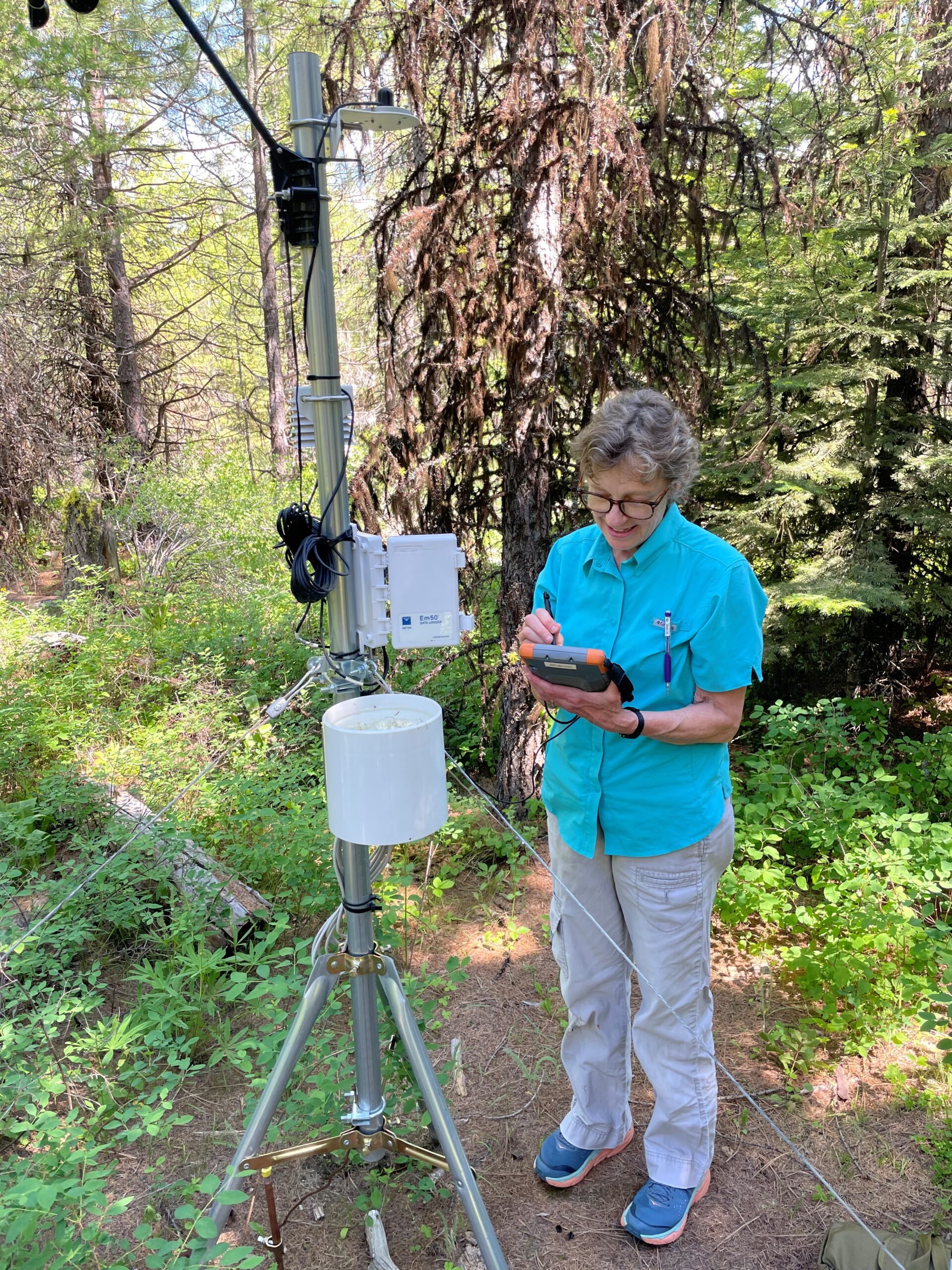Mary Rowland is at home in the wild, especially when monitoring the behavior, movement and habitat use of elk and other ungulates. In fact, she is one of the preeminent elk researchers in North America.
Rowland received a B.S. in Zoology from Duke University in 1977 followed by a M.S. of Wildlife Ecology at Colorado State University four years later. She currently serves as an emeritus scientist at the U.S. Forest Service Pacific Northwest Research Station on the Starkey Ungulate Ecology Team, where she’s worked since the early 1990s.
Early on, Rowland helped develop a ground-breaking study that showed the strong avoidance of elk to forest roads open to public motorized travel. Her work helped spark changes in wildlife and land management related to road access.
More recently, she led the development, analyses and completion of elk nutrition and habitat models in western Oregon and Washington. The results were officially adopted by the U.S. Forest Service and Bureau of Land Management as standard tools for landscape assessment of elk habitat conditions.
Over her entire career, Rowland led or contributed to more than 135 publications to further the scientific knowledge of elk and other wildlife. Citing that lifelong dedication, work ethic and passion for elk and other wildlife, their habitat and our hunting heritage, the Rocky Mountain Elk Foundation recently presented Rowland with its 2023 RMEF Excellence in Elk Country Award.
”Beginning with my graduate work in New Mexico, I’ve been given tremendous opportunities to work on projects related to elk that were not only useful to management but also interesting and fun,” Rowland said. “But none of that work was done in a vacuum – my colleagues in the Forest Service, Oregon Department of Fish and Wildlife, National Council for Air and Stream Improvement, and in multiple tribal nations have been essential at every step along the way.”
RMEF presented the award to Rowland during a virtual Forest Service meeting earlier this year.
“Mary’s scientific publications and career contributions are a diverse mix of sustained research accomplishments and management applications of regional and national benefit to wildlife and natural resource managers,” said Karie Decker, RMEF director of wildlife and habitat. “Her impact on wildlife conservation – linking research to management – and the people who work in the field reaches well beyond the Pacific Northwest.”
(Photo credit: Mike Wisdom)

